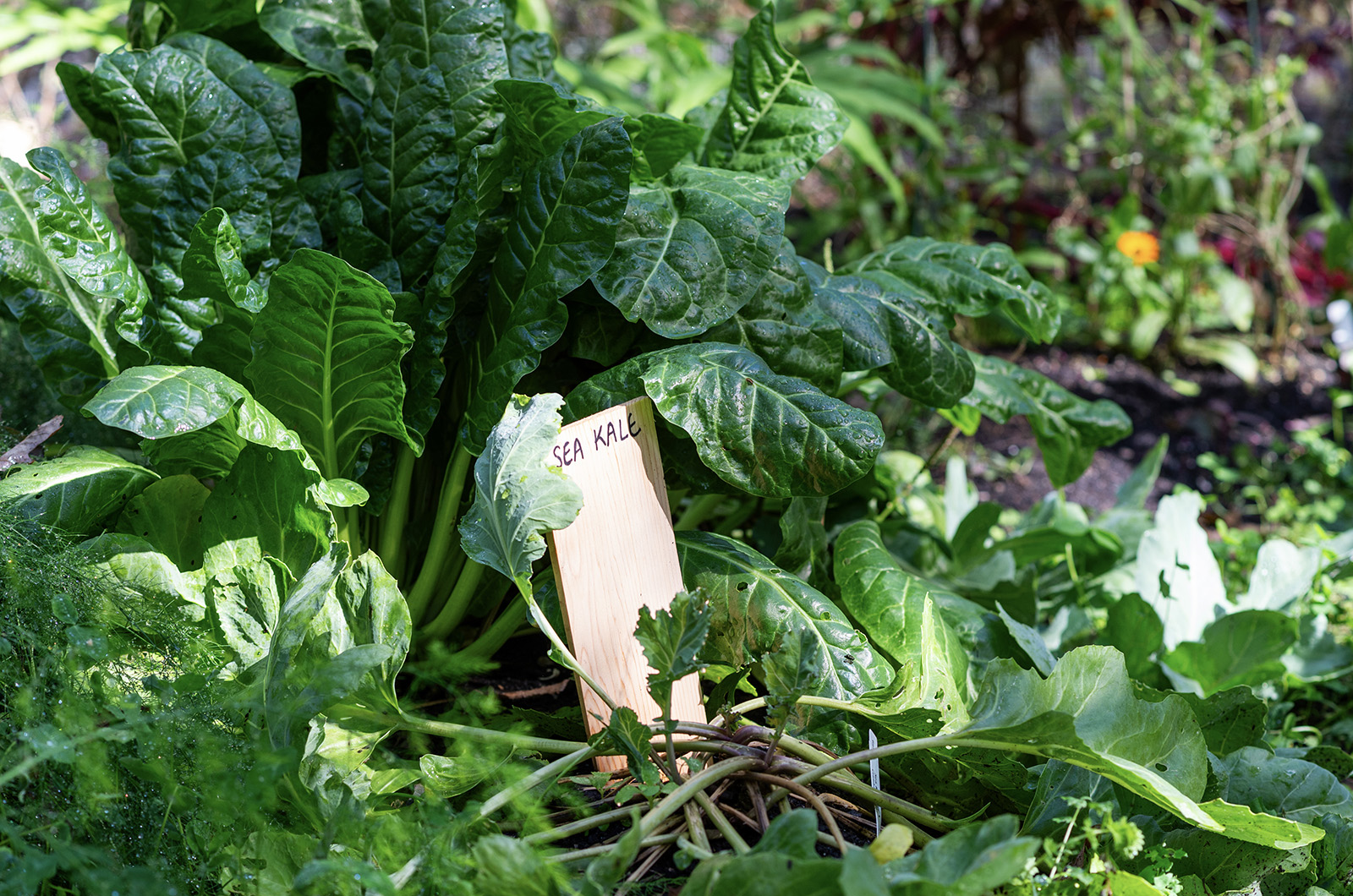The garden of the future will contain perennial plants that enrich the surrounding area, reduce the carbon footprint and be meant for everyone to enjoy.
This is the mantra of Roxanne Kapitan, who is spearheading a new food forest initiative on the Island. The first such garden opened last month at the Martha’s Vineyard Public Charter School.

With a grant from the Cedar Tree Foundation and in partnership with Island Grown Initiative, Ms. Kapitan developed the food forest with the aim of building community and fostering a deeper knowledge of unique food sources.
“Because everything’s perennial, it’s going to expand, so you have to share,” she said. “It ripples out to your friends and your grandparents.”
The garden is already producing sea kale, amaranth and lingonberries, among other plants.
Educators at the charter school and Island Grown Initiative plan to use the food forest as a way integrate lessons about horticulture, the environment and the history of the Island.
“We’re basically on stolen land,” Ms. Kapitan said. “So part of me planting the amaranth was that I wanted to give homage to the indigenous people who were here before us and the plants that sustained them. There’s history, there’s a lot of science, there’s social interaction, so every single subject [is covered].”
Ms. Kapitan developed her first food forest for a private client in 2021, then started thinking about creating something similar for the community at large. She worked with Mary Sage Napolitan, Island Grown Initiative’s regenerative landscape manager, on the design and identifying the charter school as the potential first site.
The Martha’s Vineyard Commission received a grant from the state to help towns adapt and prepare for the effects of climate change, and designing food forests are a part of that initiative.
“That grant was given to us in the interest of essentially improving food security on the Island, specifically in terms of our vulnerability to a disruption in the supply chain given the effects of climate change,” Ms. Napolitan said. “The more that we can be producing here the more secure we are if those supplies are disrupted by weather.”
Ms. Napolitan said that the food forest initiative is an ongoing part of the Vineyard’s Climate Action Plan, and she is working on developing one in every town. The next garden will be created in Aquinnah within the next few years.
“There’s quite a lot of enthusiasm about it across the island,” she said. “The hope is that we’ll be set up to be able to just keep moving and doing more every year as we have the people who are interested [in helping out].”







Comments (1)
Comments
Comment policy »